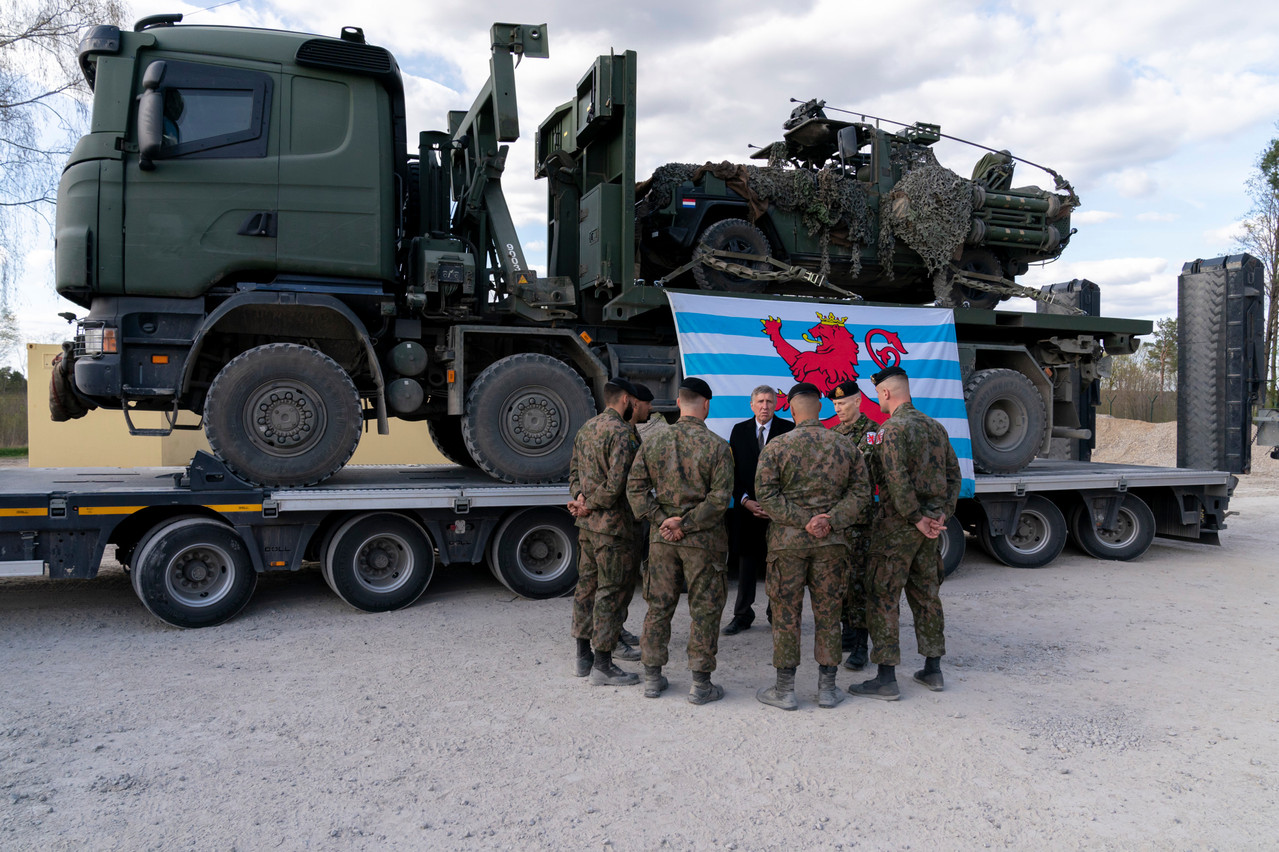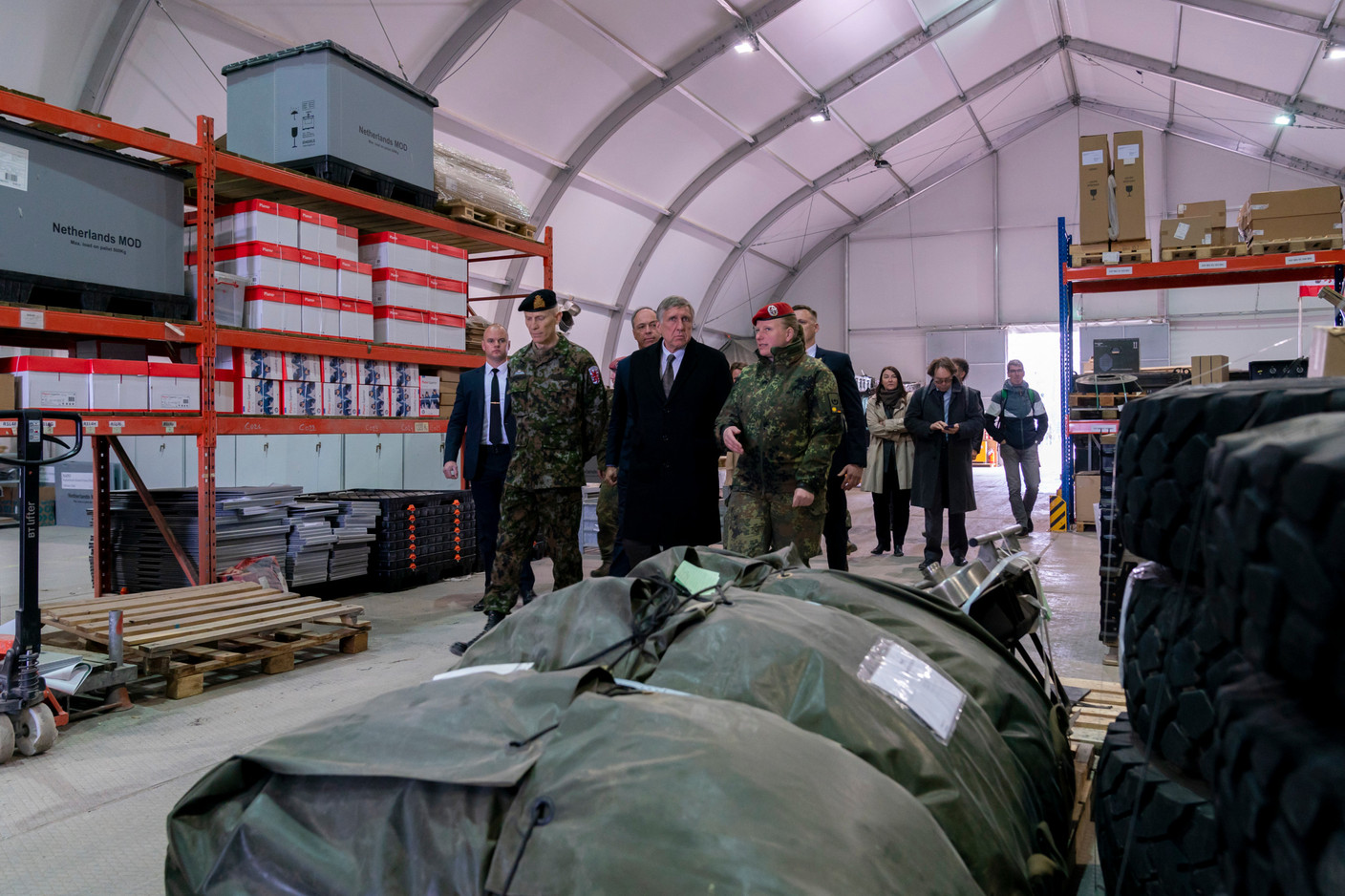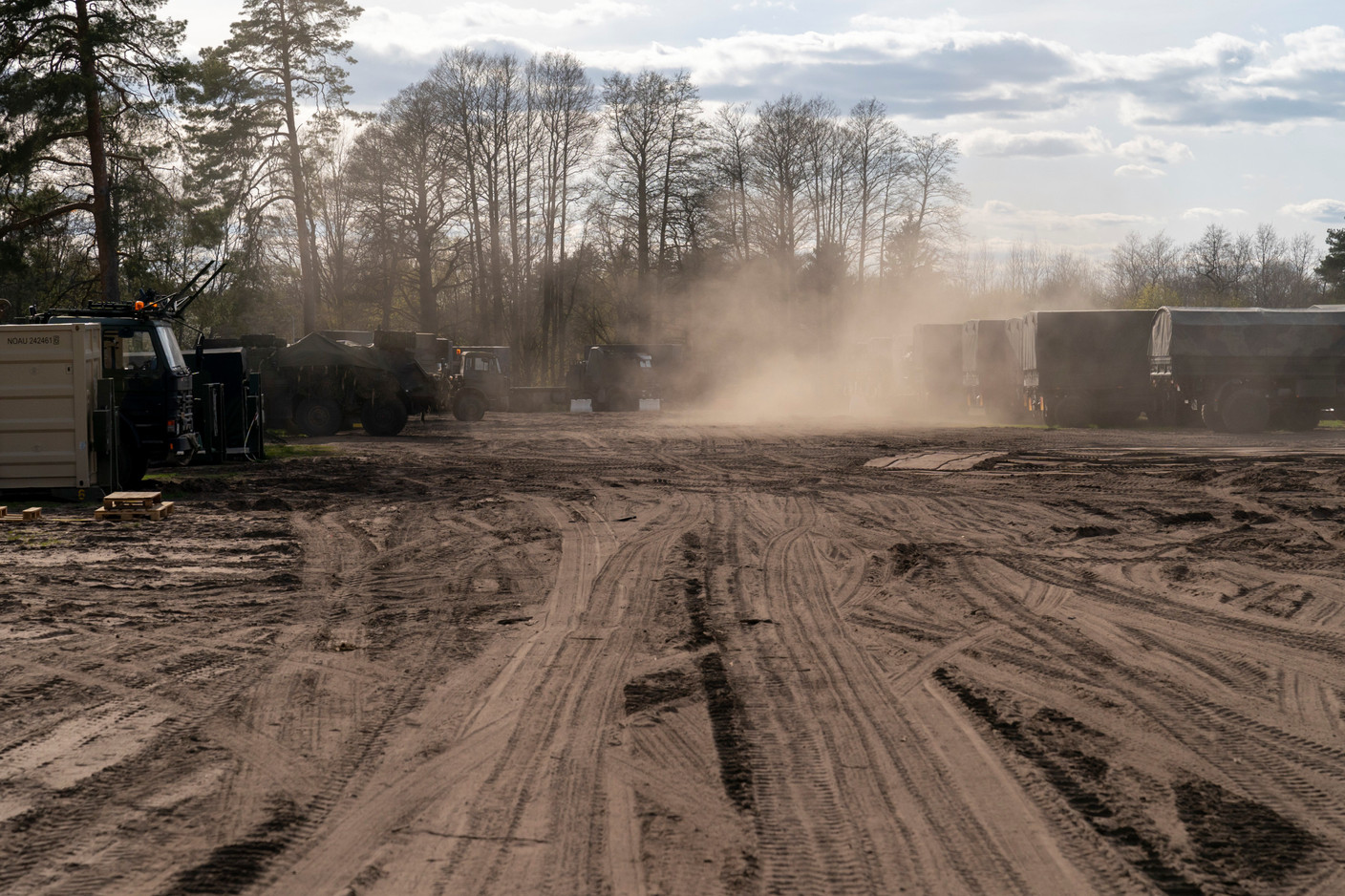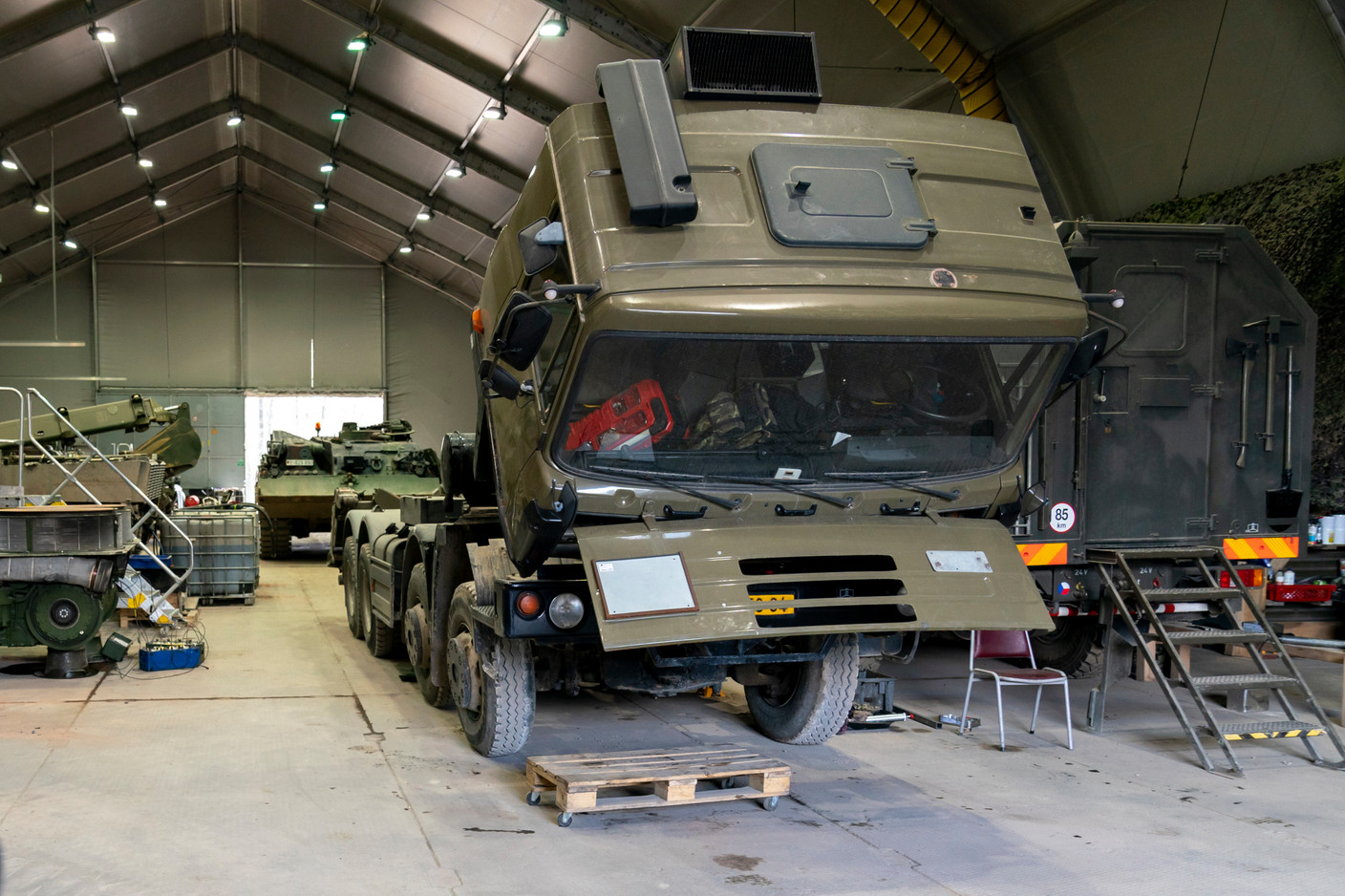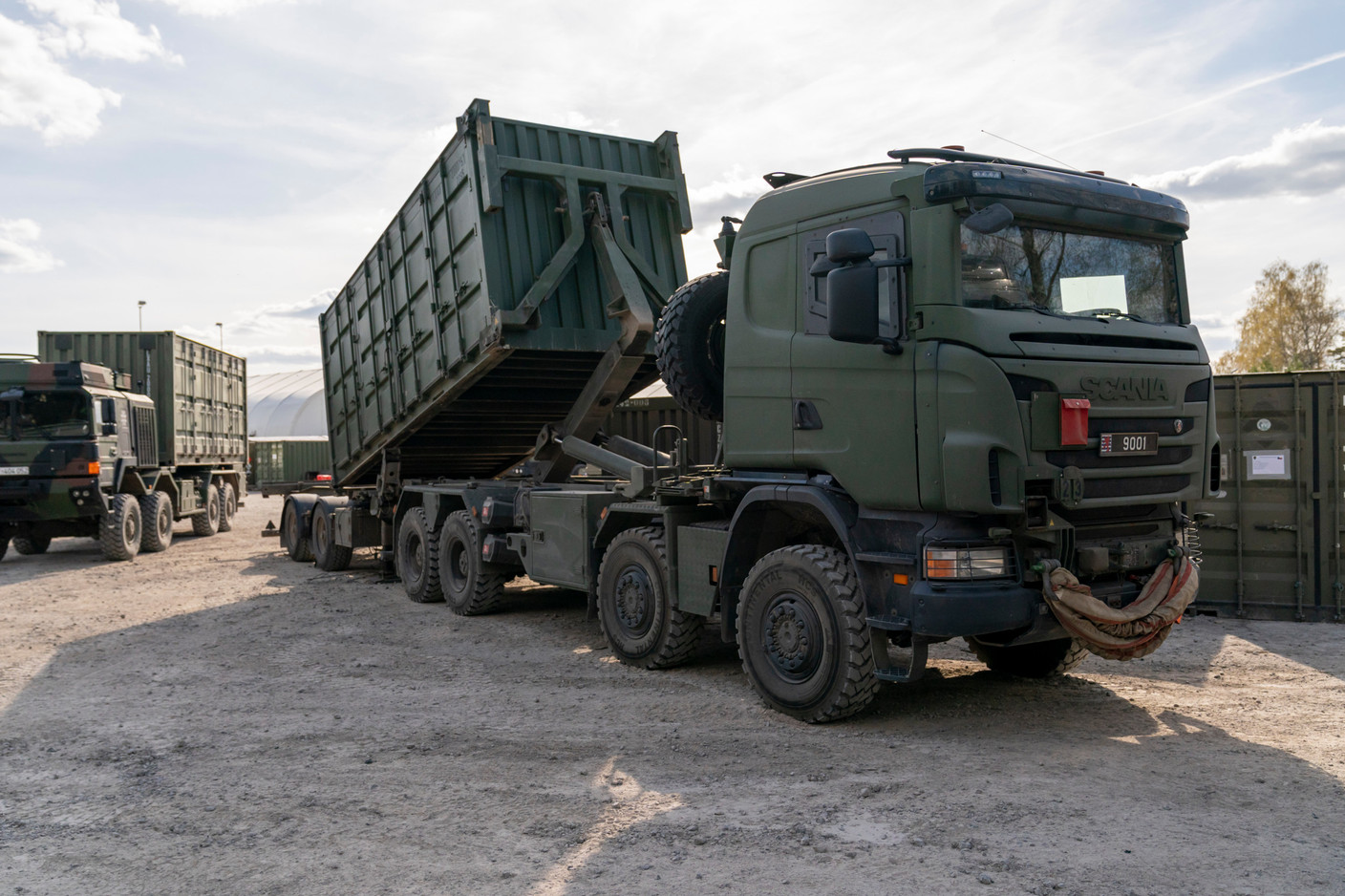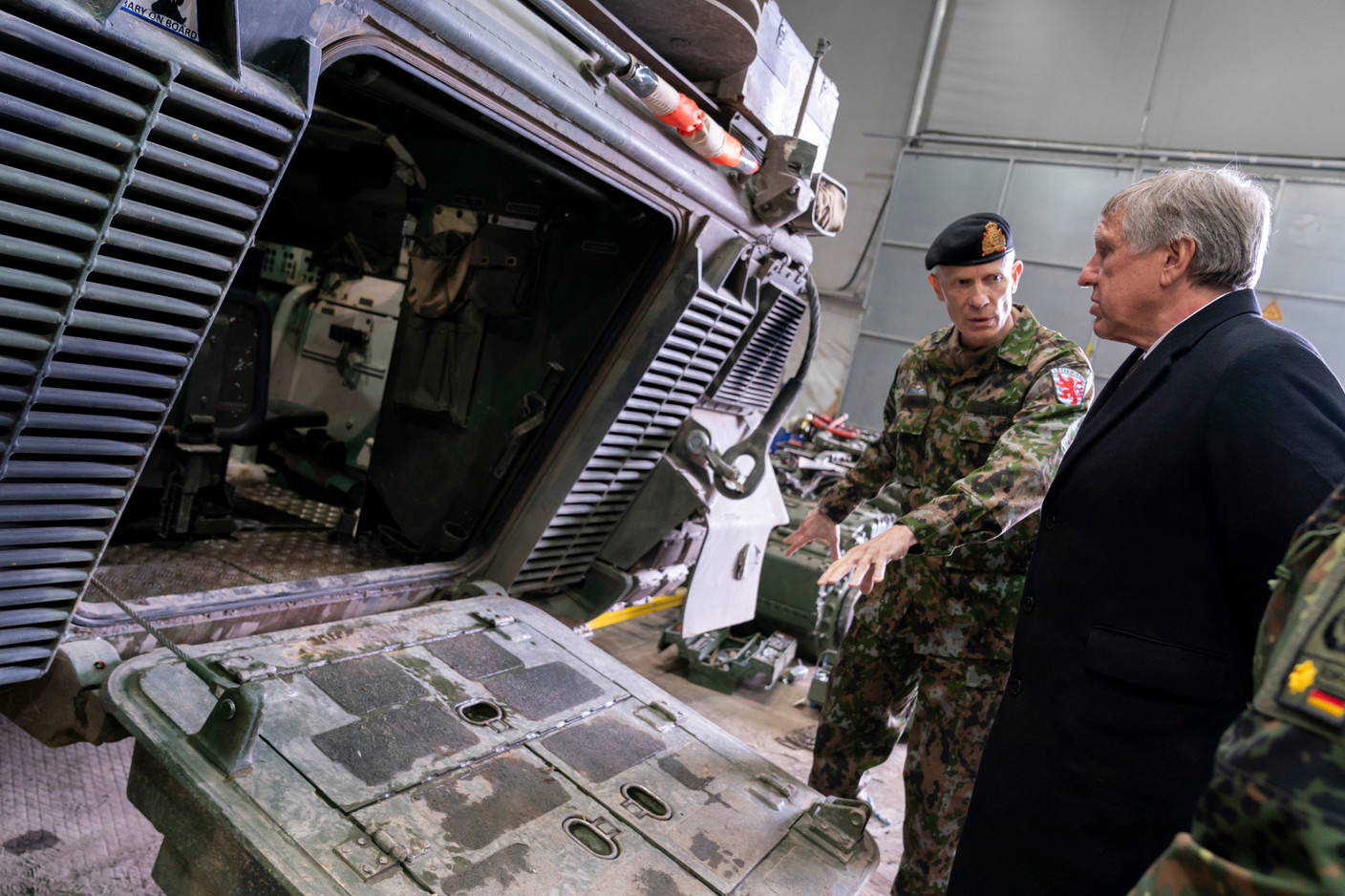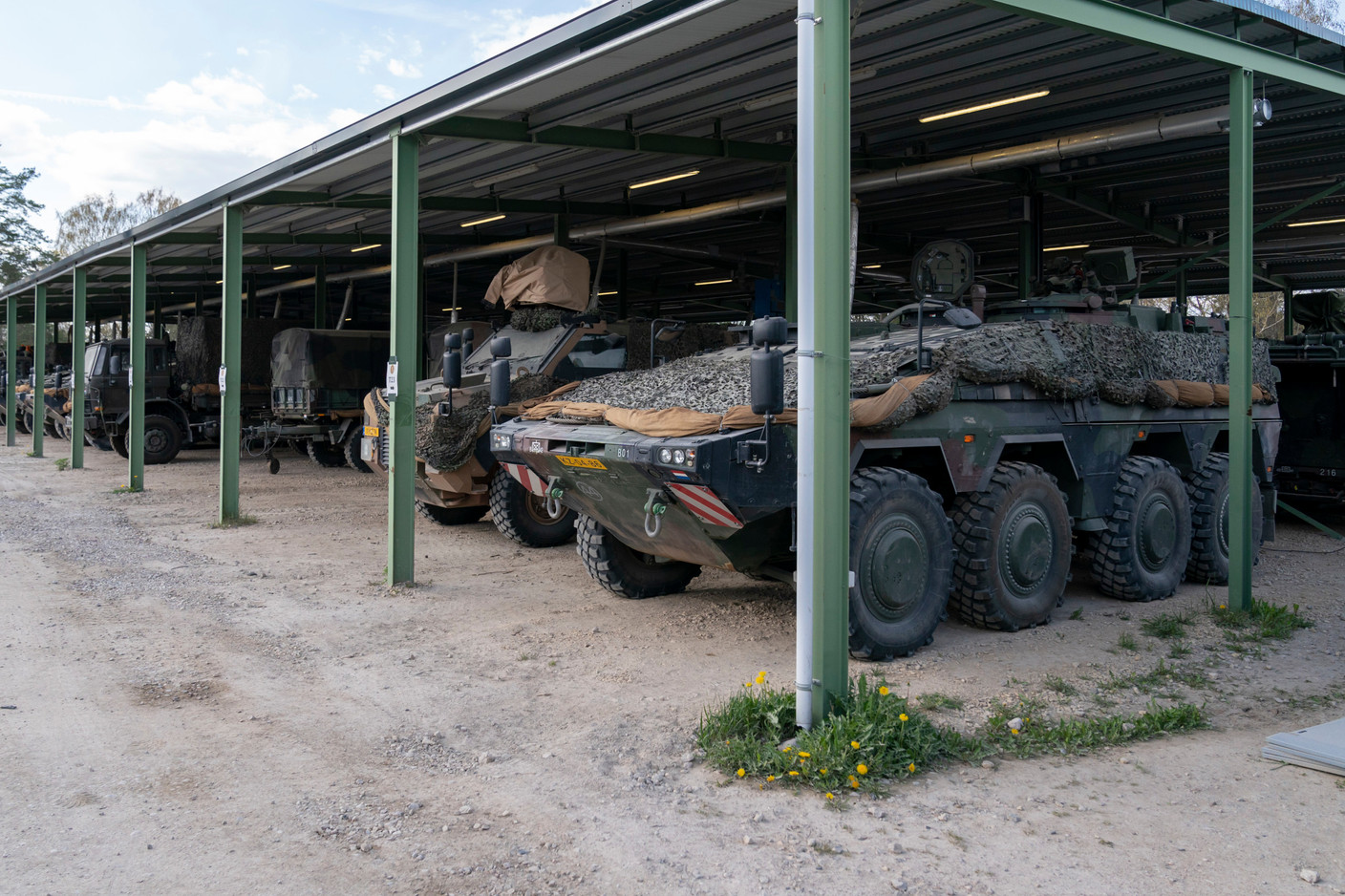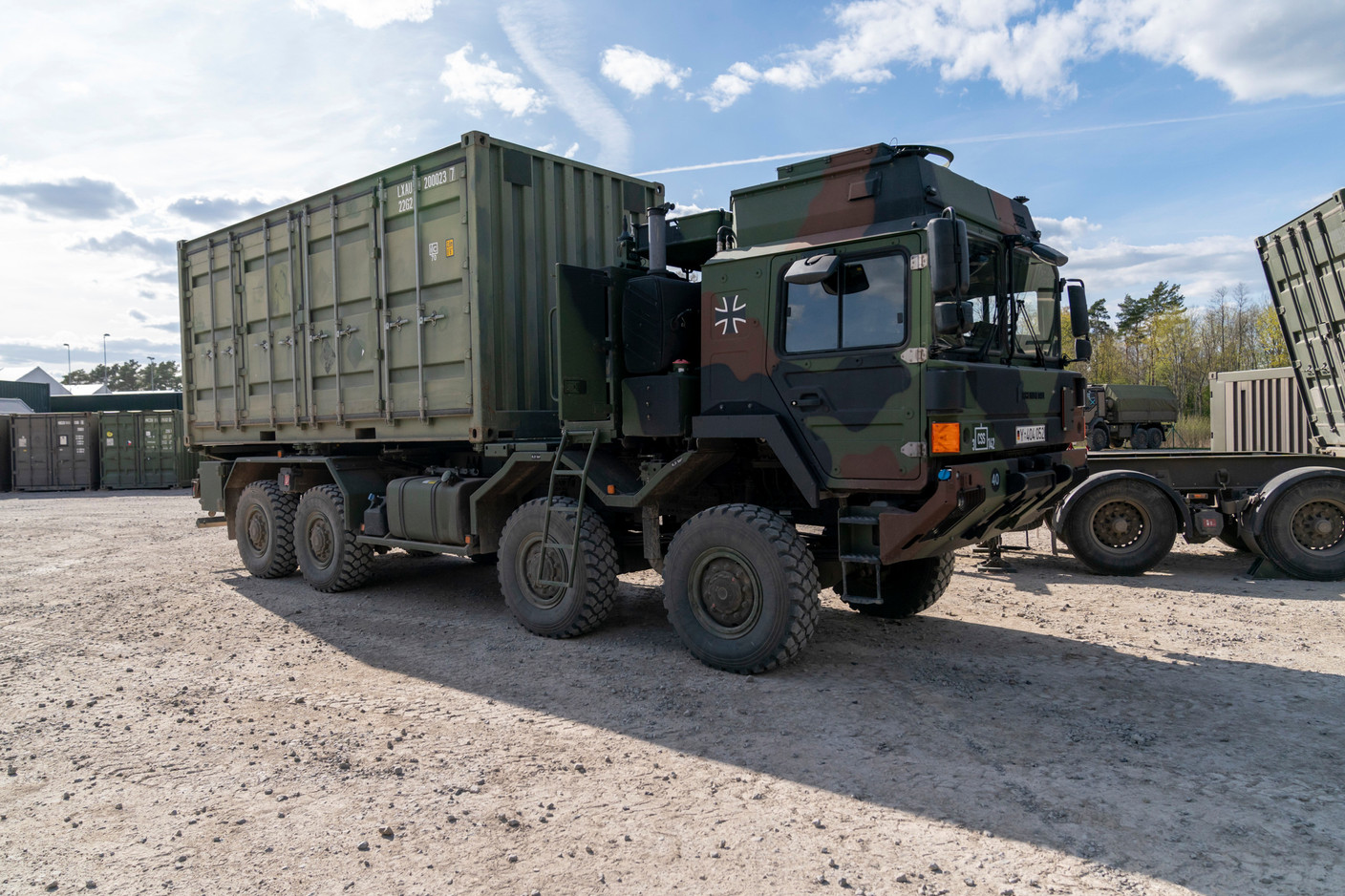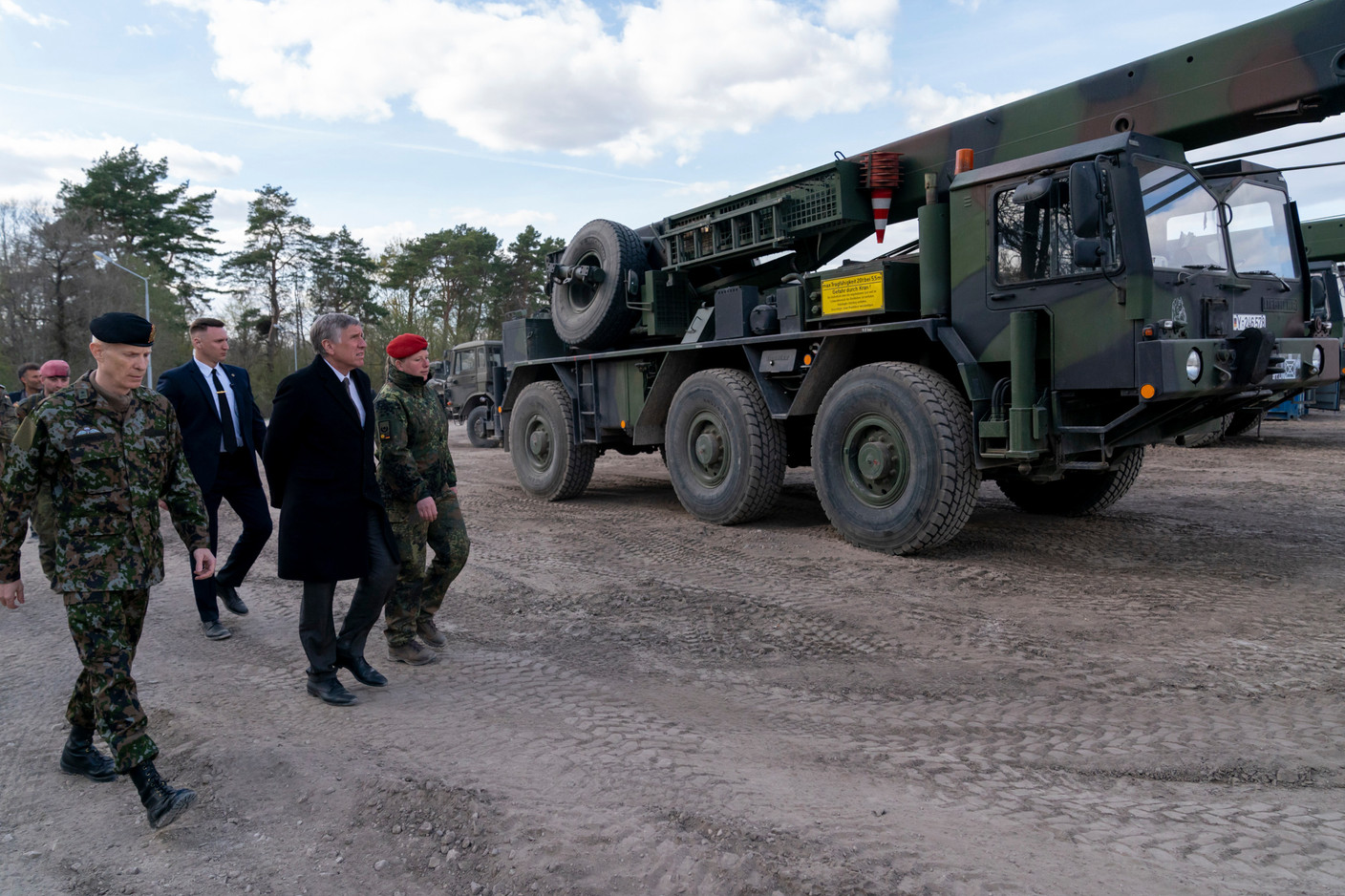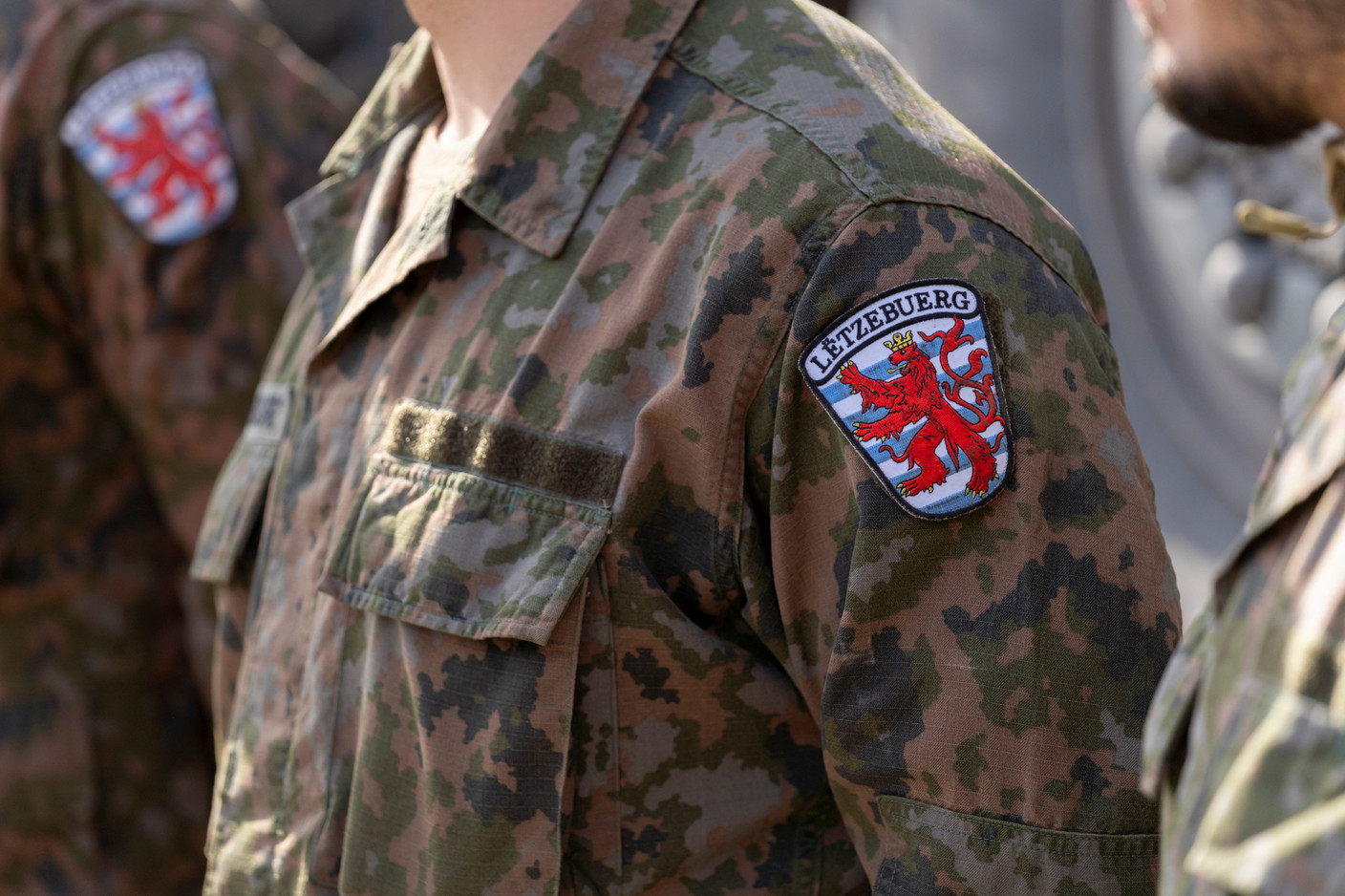There are six soldiers stationed in Lithuania--four since the beginning of the year (the exact date cannot be given for security reasons), two since 28 February, following Russia’s invasion of Ukraine. Together, they make up the Luxembourg group present in Lithuania as part of the enhanced forward presence (EFP).
Set up in 2017 by Nato, after the illegal annexation of Crimea by Russia, the station aims to ensure a presence of the organisation in Estonia, Latvia, Lithuania and Poland. New groups have been set up in Bulgaria, Hungary, Romania and Slovakia since the start of the war in Ukraine.
The Luxembourg army already contributed to the German-led grouping in Lithuania in 2017, with a transport platoon for four months. Then, it provided support for another four months in 2018, with a reconnaissance platoon reinforced by a maintenance team. Since January 2020, four Luxembourg soldiers--now six--have been working in the transport team every four months. They work together with German, Belgian, Czech, Icelandic, Dutch and Norwegian soldiers within the 11th EFP rotation in Lithuania, which includes more than 1,600 Nato soldiers.
Fearless
Bausch (déi Gréng) met the Luxembourg soldiers on Wednesday 4 May. There were five of them, the sixth being on a mission. Among them was Marcelo, 26 years old. He arrived in Lithuania for four months at the beginning of the year. “I had the choice between Mali and Lithuania,” he says. He preferred to return, for his second mission since joining the army in 2015, to where he had already been sent in 2017, within the first Luxembourg transport platoon. At the time, “there were about 20 of us”, he recalls.
For the first hours of the day at the Rukla base, “we take the keys to the truck. We drink a coffee. Then we have missions,” which are different every day. “It could be carrying ammunition from one depot to another, or fetching benches,” he says. “"Our daily life is to help, it’s a real mission. Although the soldiers must also be ready in case of an attack.” If it were to happen, “we would have to set up to transport diesel, water, food”. But he says he has no fears.
Voluntary soldiers
André, 23 years old, arrived at the same time as Marcelo. This is his first mission abroad. “It’s good to work with other nations, you learn a lot from them,” explains the young man, who joined the Luxembourg army two years ago.
Matt, 35, leads the Luxembourg detachment in Lithuania. He also joined the rotation earlier this year. “It wasn’t planned, but the person who was supposed to go had an accident. We were asked who would volunteer to replace him, and I said yes first,” he says proudly.
Going abroad is what this soldier, who joined the army in 2004, prefers. He has already completed seven missions outside Luxembourg. He is due to return to the grand duchy in the middle of the year, but only for a few weeks. “Then I’m going to Canada for training,” he says with a smile. If travelling is not new for him, it is for his family. This makes him think about the frequency of travel, he admits, “but that’s my job.”
Language and logistics
The Luxembourg soldiers were able to present their equipment to Bausch during a guided tour of their base in Rukla. Bigger and bigger khaki trucks parked along dusty alleys. They then had an exchange with the minister and the army’s chief of staff, general Steve Thull.
“We are very happy that the soldiers are well integrated into the contingent on the ground,” commented Bausch. He has received positive feedback on their “commitment and skills”, whether it is because they are trilingual or for their “approach to logistics”.
It is very important for us to be there to show our solidarity.
“It is very important for us to be there to show our solidarity,” he explains. But also to reassure the Lithuanian population. “It has a history with its big neighbour, [its inhabitants] are afraid.” The EFP serves to “show the red line that should not be crossed.”
Currently a maximum of 10 soldiers per rotation can be deployed. Asked if the number of soldiers could be increased beyond six, Bausch answers: “This could be discussed at the Madrid summit”, scheduled for June. Bausch expects the countries in the region to ask for reinforcements. Luxembourg could then “increase its presence here or add other groups. We will see, coordinate with our Nato partners and see what is feasible or not.”
Luxembourg soldiers are present in other countries, such as Mali, where there were 22 of them in April. “Today, I cannot say whether the mission will last beyond 2022. In the middle and end of the year, we will learn more about the presence of the Luxembourg army abroad.”
This story was first published in French on . It has been translated and edited for Delano.
